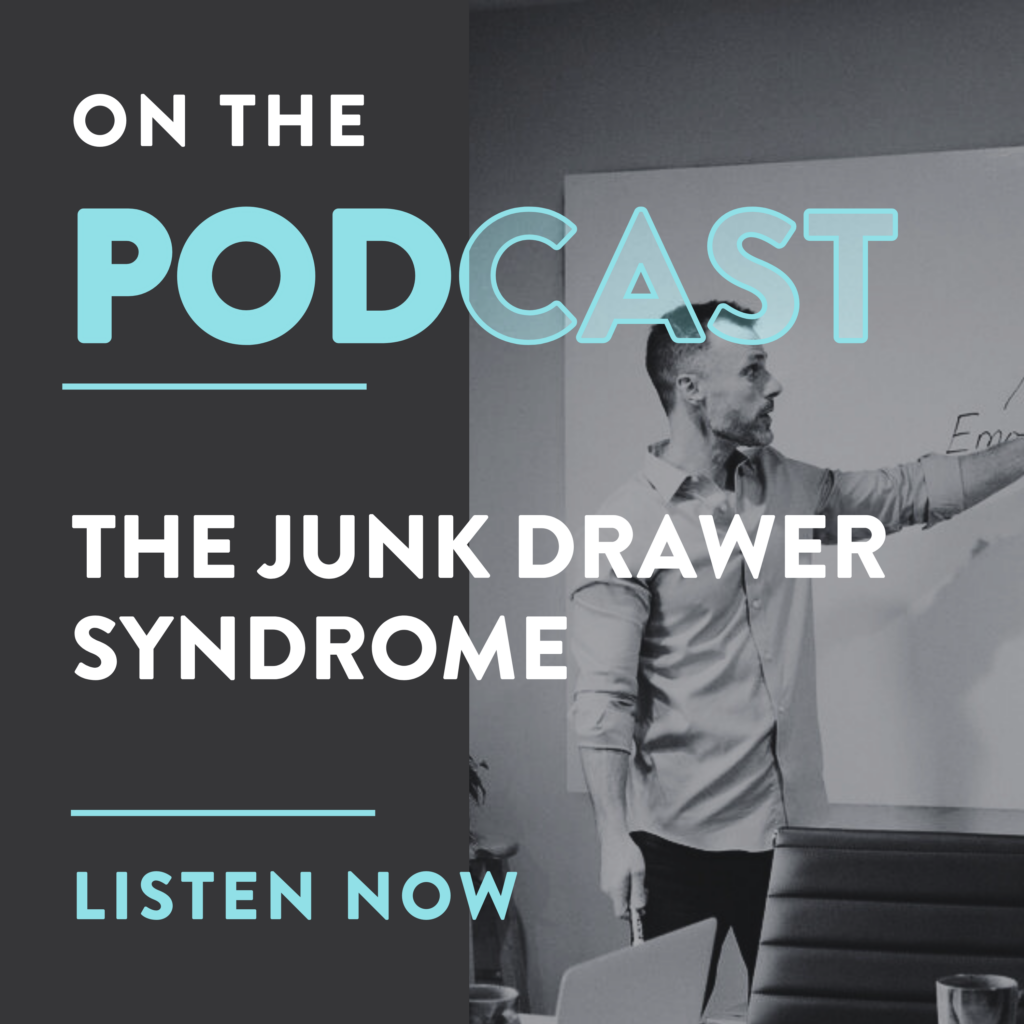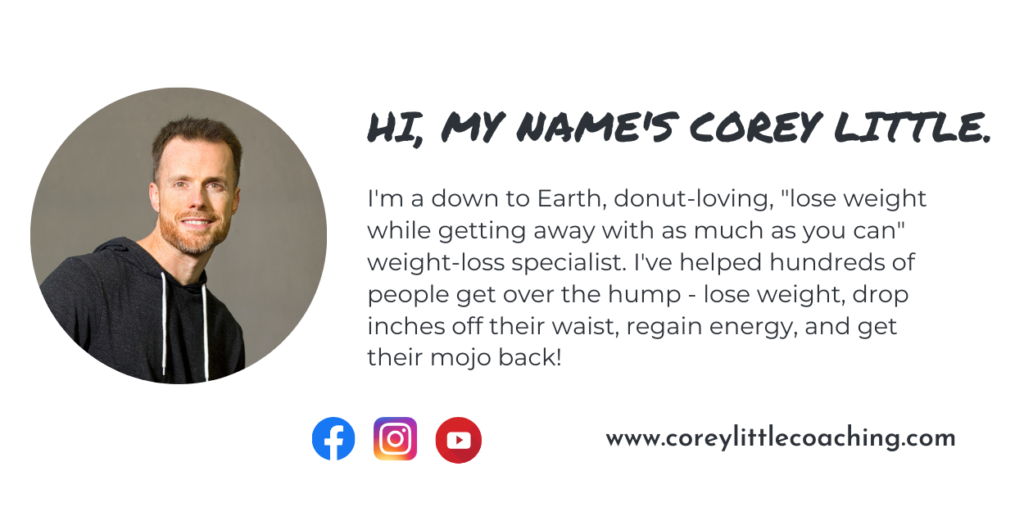
Listen on Spotify | Listen on Apple Podcasts
This week on the Real Life Weight Loss podcast, I’m diving into something that I see time and time again when working with clients — what I call the “Junk Drawer Syndrome.” While this concept might seem simple at first glance, it’s a powerful illustration of how many of us get stuck, not just in our health and fitness journey, but in life overall.
What is the Junk Drawer Syndrome?
Imagine a junk drawer in your house — the one filled with old batteries, random tools, crumpled receipts, and things you might not even recognize. It’s cluttered, disorganized, and contains a mess of things you might need and things you definitely don’t.
Now, let’s say you want to clean out this drawer. Which approach is better?
- Pull the drawer out entirely, dump everything on the counter, and sort through it clearly.
- Keep the drawer in place, barely pull it open, and try to sift through the mess while it’s still jammed into its tight, dark space.
Obviously, the first option is much easier! You can see everything, assess what’s useful, and toss out the junk. But here’s the thing — so many of us don’t approach our problems this way. We try to “sort through the mess” while it’s still buried inside us, believing we need to figure it all out on our own before we ask for help. And that’s exactly what I mean by the Junk Drawer Syndrome.
The Weight Loss Connection
I see this all the time in my coaching programs. People believe they need to figure things out on their own before reaching out for help. They’ll tell themselves things like, “I need to figure out what’s going on with me first. I need to sort my thoughts out, get my routine right, or understand why I’m struggling before I can ask Corey for help.”
This is like cleaning your house before the cleaners arrive — it defeats the purpose! The very reason you hire a cleaner (or a coach) is to help you clean up the mess. And yet, many of us feel the need to “get things together” before we allow others to step in and guide us.
Why We Do This:
There are a few key reasons why people fall into the Junk Drawer Syndrome:
- Embarrassment and Shame
We don’t want others to see how “bad” things have gotten, whether it’s the state of our house, our eating habits, or how much we’ve neglected our health. We think, “If they saw the mess I’m in, I’d be so embarrassed,” so we keep it hidden, trying to deal with it alone. - Pride and Independence
Many people believe they should be able to handle things themselves. “I’m an independent person. I should figure this out without needing help,” they think. But this mindset often does more harm than good. - The Belief That No One Can Help Until You Get Clarity
We mistakenly think, “I need to get clear on what my problem is before anyone can help.” But here’s the truth — clarity often comes from asking for help. A good coach, therapist, or friend can help you identify the root of the problem, often faster than you can on your own.
The Problem with Waiting to Ask for Help
Let me be clear: the Junk Drawer Syndrome doesn’t work. Here’s why:
- It’s Unnecessarily Hard
Just like cleaning your house before the cleaners come, trying to solve your problems on your own makes things more difficult than they need to be. When you ask for help, you make the process easier and faster. - You Can’t See What You Can’t See
Sometimes, we’re too close to our own problems to see them clearly. You might have something “stuck between your teeth,” but without a mirror (or a coach), you’ll never know where it is. A great coach helps you see the things you’ve been missing — sometimes for years. - It Reinforces Unhealthy Beliefs
By insisting on doing things alone, you reinforce the belief that you should never need help or guidance from anyone. But that’s not true! Independence is great, but no one is 100% self-reliant. Everyone needs help at times. - Shame and Secrecy Thrive in the Dark
When you keep things hidden, they gain power. The longer you avoid asking for help, the more embarrassed or ashamed you feel. As the saying goes, “In darkness, it gathers; in sunlight, it scatters.” Bringing your struggles into the light helps diminish their power over you.
How to Break Free from the Junk Drawer Syndrome
So, how do we break free from this mindset? The solution is simple, yet challenging: dump out the drawer. Let someone help you sort through the mess. Here’s how:
- Acknowledge that you’re struggling
Even if you don’t know why you’re struggling, acknowledging that something feels off is the first step. You don’t need to have all the answers before seeking help. - Find someone who can help you sort it out
Whether it’s a coach, therapist, or trusted friend, find someone who can provide an outside perspective and help you see what you might be missing. - Take action sooner rather than later
Don’t wait until you have everything figured out. Asking for help will expedite your progress and get you where you want to go faster. - Be open to guidance
Let go of the idea that you need to solve everything on your own. Being open to help doesn’t make you weak — it makes you wise.
Are You Stuck in the Junk Drawer Syndrome?
Take a moment to reflect:
- Are you hesitant to ask for help in any area of your life?
- Do you feel like you need to “figure things out” on your own before seeking assistance?
- Are you trying to sort through the mess while keeping it hidden from others?
If any of this resonates with you, maybe it’s time to stop struggling alone. Dump the drawer out, let someone help, and watch how much easier it becomes to sort through the clutter.
Losing weight, improving your health, or navigating life’s challenges is not about doing it all yourself. It’s about gaining life, gaining clarity, and asking for help when you need it. The Junk Drawer Syndrome can keep you stuck, but the solution is within your reach — just pull the drawer out and ask for help.

